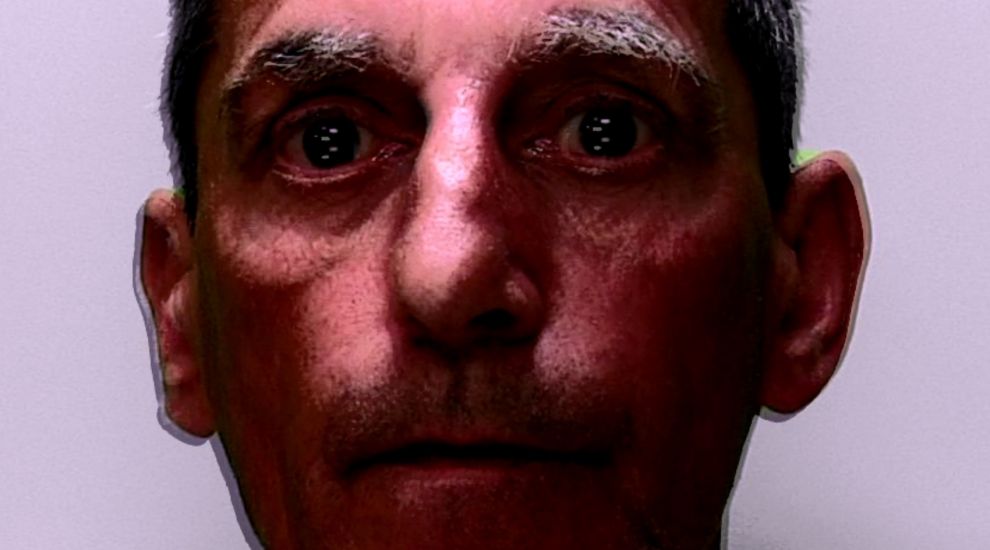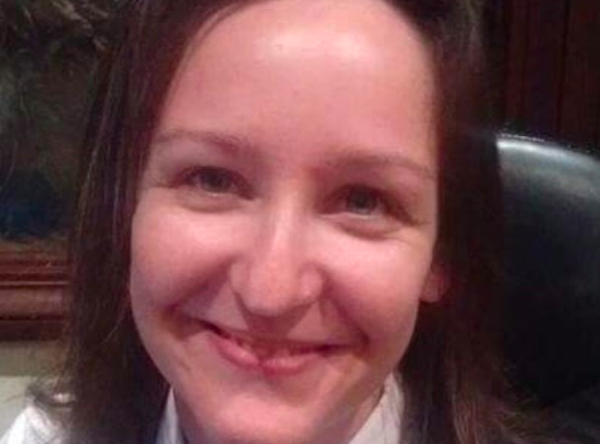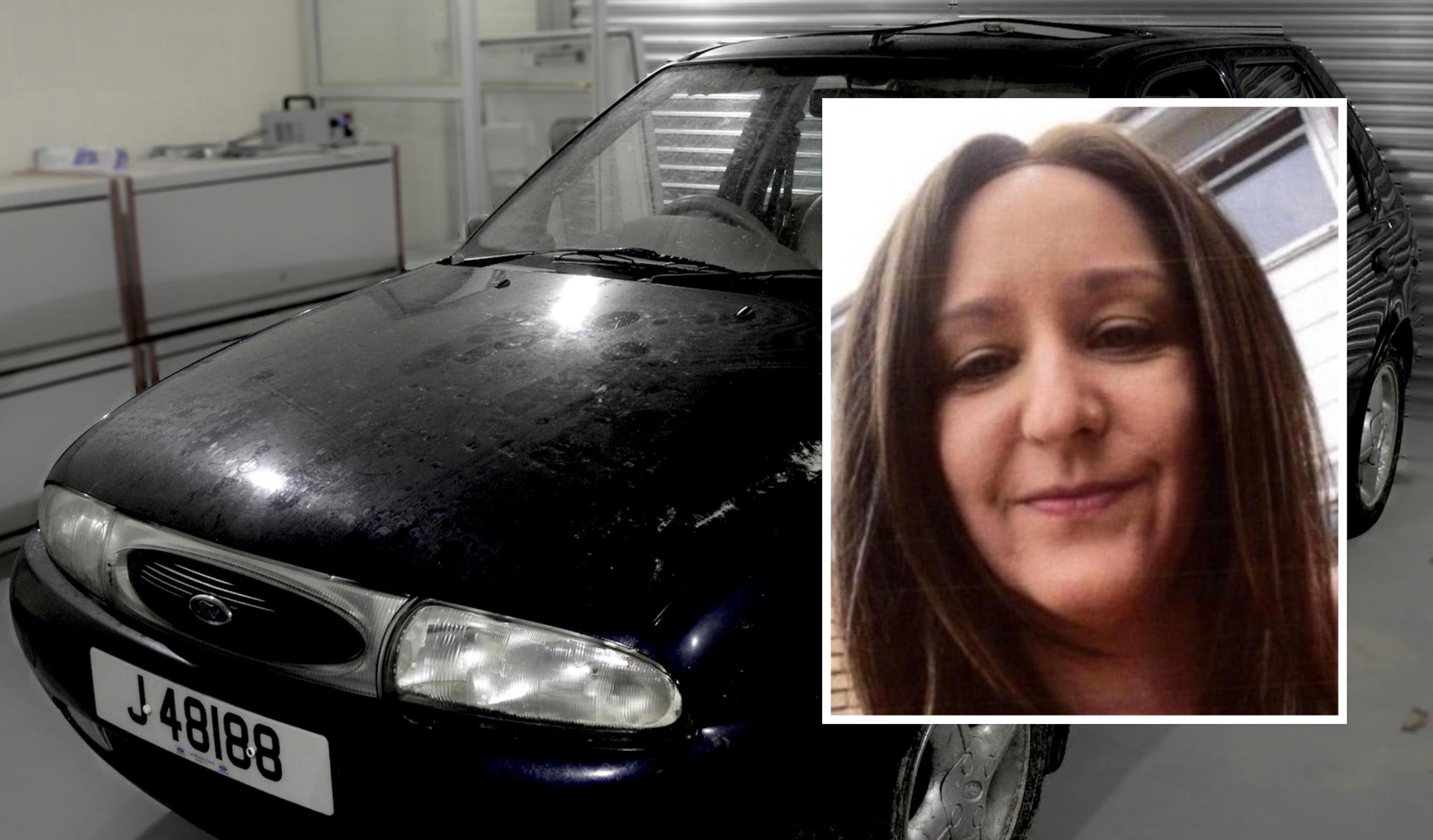


Police officers giving opinions instead of facts... an alternative of manslaughter not being presented to the jury... a "lamentable" approach to the disclosure of evidence... and footage branded with the defendant's initials...
For the first time, the reasons why 58-year-old Jamie Lee Warn faced three trials for the 2018 murder of 37-year-old Zsusanna Besenyei can now be revealed.
It comes after documents were published yesterday.
Two of the trials amounted to “miscarriages of justice,” the Court of Appeal concluded.
Ms Besenyei was killed by Warn at his flat in First Tower in May 2018, possibly after an argument over money.
The two were having a relationship which Warn was keeping secret from his partner.

Pictured: Zsusanna Besenyei was born in Hungary and moved to Jersey in 2011.
He then moved her body to the boot of her car.
Three days later, Warn dumped the body at Stinky Bay in St. Ouen in the middle of the night.
He then drove around to St. Aubin’s Bay, where he abandoned her car at the shoreline on a rising tide, to make her death look like suicide.
Warn was first convicted in March 2019, but that conviction was overturned by the Court of Appeal in July 2019.
A retrial was held in November 2020 and, once again, a jury found Warn guilty of murdering Ms Bensenyei.
However, once again, Warn took his case to the Court of Appeal, which quashed the second conviction and ordered a second retrial.
That concluded last December, with the third jury Warn has faced again returning a guilty verdict.

Pictured: Warn abandoned his victim's car at the shoreline on a rising tide, to make her death look like suicide.
For the third time, Warn appealed but this time he was unsuccessful. This week, the Court of Appeal rejected his application for leave to appeal, concluding that his arguments would not have any realistic prospect of persuading the Court that his conviction should be quashed.
The Court of Appeal also ordered that their previous judgements should be published, revealing for the first time mistakes in the prosecution case and a misdirection from the judge that led to two convictions being overturned.
For the first trial, the Court of Appeal concluded there were a number of irregularities in the trial's conduct and in particular in the presentation of the case by the prosecution.
These included the wrongful admission of evidence from two police officers giving commentary on CCTV footage in which one of them gave his opinion that the man shown was the same man in each sequence.
The appeal judges found: “The officers’ evidence could and should have been confined to no more than explaining to the jury the basis on which they had selected the footage of the individual who was shown to the jury by reference to the similarities such as his clothing, footwear, gait and rucksack and in the footage of the deceased’s car, its distinctive features.
“Their evidence would have had to include the location of the cameras from which each piece of footage had been filmed and any discrepancies in the time recorded by each camera. All that evidence should have been purely factual. There was no need for them to express any opinions.
“The jury would then have been able to compare the footage for themselves in order to form their own view as to whether the individual and/or the car seen in each sequence was or were the same.”

Pictured: Advocate James Bell represented Warn three times at trial and twice before the Court of Appeal.
CCTV footage showed to the jury also contained title pages with the letters JW on them, including “JW In St Helier Including HSBC” and “JW In St Helier Including A & B Superstore” and pages such as “JW First Tower Car Park”.
It was, however, for the jury to determine if the man in the footage was Jamie Warn.
“The primary fault lay with the prosecution for leading inadmissible evidence and failing to comply with the directions given by the Deputy Bailiff in advance of the hearing,” said the Court of Appeal.
The Court also found the prosecution had been wrong to admit evidence from the States of Jersey Police Crime Analyst in whose PowerPoint presentation she repeated accounts given by other witnesses, drawing together evidence obtained from different sources.
“Hearing the compilation of evidence from an experienced police analyst may have unfairly swayed the jury,” said the Appeal judges.
They also allowed the appeal because of the late disclosure to the trial by the prosecution of a forensic report “against a background of a lackadaisical approach to disclosure generally”.
They said: “The prosecution’s approach to disclosure was lamentable but if the defence were prejudiced by it, their remedy was to seek an adjournment of the trial and they chose not to do so.
“However, we accept that it would have been useful to the Appellant [Warn] to have had timely disclosure of the 27 July forensic report.”
The Court of Appeal also took issue with evidence given to the jury that Warn had once been a funeral director, using it to suggest that Warn had knowledge on how to move a cadaver.
“The evidence had no probative value and there was a risk that it might have been prejudicial in the minds of the jury. We therefore agree that it should not have been admitted,” said the appeal judges.
They also found fault with an “adverse comment” by prosecuting counsel, Advocate Simon Thomas, in the course of his summing up on Warn’s exercise of his right to remain silent and not give evidence before the court.
The appeal judges said: “In our judgment, the statement [from Adv Thomas] that ‘you’ve got no scenario put before you as to how Ms Besenyei might have died lawfully’ presumes that the Appellant had caused her death and hence was in a position to provide an explanation as to how she died.”
Warn’s second conviction was overturned for very different reasons. This time, it was not the prosecution case which was flawed but the judge, Commissioner Sir William Bailhache, should have allowed the jury to consider manslaughter as an alternative charge to murder.
In its judgment of June 2021, the Court of Appeal said: “The Commissioner should have left the possibility of a manslaughter verdict to the jury.
“His failure to do so is understandable in light of the submissions that were made to him at the trial and his own concern to be fair to the Appellant. We have had not only the benefit of full argument on both sides but also the opportunity to consider the trial transcript in its entirety.
“While the case against the Appellant was on one view compelling, it cannot be said that a jury fully directed would inevitably have convicted of murder.”
They added: “We should make clear that we have considerable sympathy for all those involved in the trial of this unusual and difficult case.
“Advocate Thomas had consistently put forward the Crown case that this was a deliberate killing and nothing else: if that was not proved the Appellant was entitled to be acquitted.
“For his part, Advocate [James] Bell [for Warn] was seeking to present the defence case in a way he considered best served the interests of the Appellant.
“Presenting the jury with this stark choice made it difficult for the judge. It is apparent not only from the Commissioner’s ruling but also from his exchanges with counsel, that he was striving to be fair and doing his best not to distract the jury by directing them on an issue which appeared to be remote from the real point of the case.”
But the Court of Appeal concluded that it had no choice but to overturn the conviction.
Warn was unanimously found guilty for a third time last December and in March he was sentenced to life imprisonment, with a minimum term of 17 years minus the 1,394 days he had spent on remand in custody.
He represented himself at his third appeal hearing but, this time, the Court of Appeal was not convinced by his arguments.
Comments
Comments on this story express the views of the commentator only, not Bailiwick Publishing. We are unable to guarantee the accuracy of any of those comments.